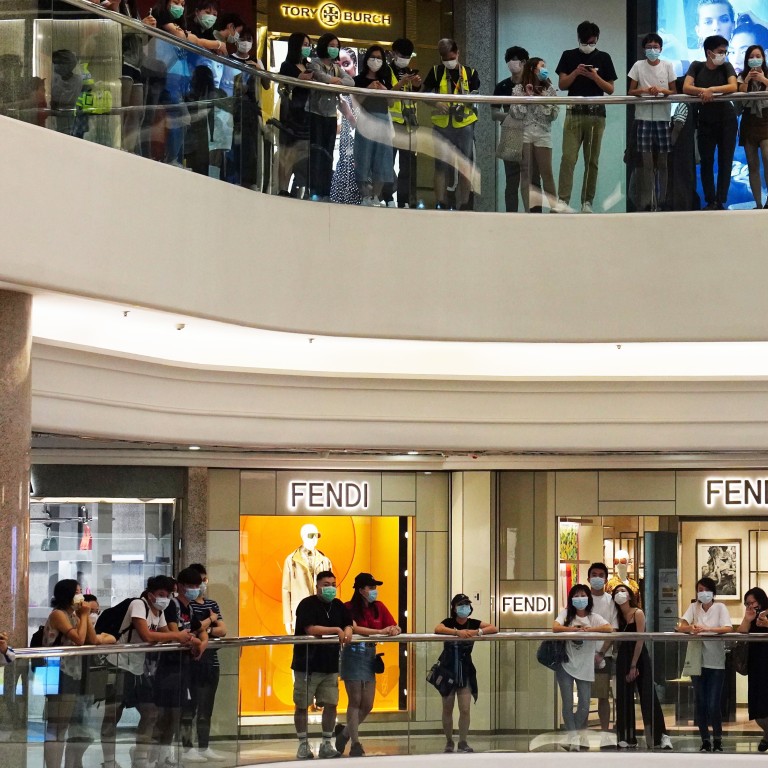
Hong Kong developers suffer in market’s biggest sell-off since mid-2015 as new security law revives protests, capital flight concerns
- Shares of city’s office and shopping centre landlords dived by more than 7 per cent, among the biggest losers in the sell-off
- A new legislation proposed by Beijing to curb activities aimed at toppling the central government is fuelling political risks
The city’s biggest landlords of office towers and shopping malls slumped, dragging the broader market down by the most in nearly five years.
Sun Hung Kai Properties, Hong Kong’s largest developer and owner of commercial complexes including the iconic IFC towers in Central, plummeted 7.8 per cent to HK$90.75. Link Reit, which owns 126 shopping centres and offices in Hong Kong, dived 10.2 per cent to HK$60.95. Swire Properties, owner of major offices in Admiralty and Quarry Bay, declined 10.2 per cent to HK$18.18.
The benchmark Hang Seng Index tumbled 5.6 per cent, its biggest daily percentage drop since July 2015. A sub-index tracking property stocks slid 7.8 per cent, the worst among industry sub-gauges.
“Investors were afraid property prices will collapse and capital would flow out of the Hong Kong market,” said Kevin Leung, executive director of investment strategy at Haitong International Securities in Hong Kong. “Concerns about a new wave of protests were obviously factored in as well.”
Chinese legislators on Thursday evening revealed they will discuss a proposed law tailor-made for Hong Kong to ban all seditious activities aimed at toppling the central government.

The legislation is controversial because opponents believe this will erode Hong Kong’s long-cherished rights and freedoms, which could in turn weaken its status as a free economy and an international financial centre. Besides, it could also widen the rift between the US and China.
A previous attempt in 2003 by the Hong Kong government to introduce a national security bill under Article 23 of the Basic Law, the city’s mini-constitution, led to peaceful protests by half a million people on the streets.
Two Sessions 2020: Beijing sets sights on Hong Kong legal system as part of national security move
There are already calls to revive protest activities in response to the proposed security law on LIHKG, an online forum that has become a major organising venue during the protest movement last year. Many are proposing a march in Causeway Bay, the city’s core shopping district, on Sunday.
A revival of protests will further strain Hong Kong’s shattered economy, after months of anti-government street protests and the subsequent Covid-19 pandemic hammered the retail and tourism industries.

